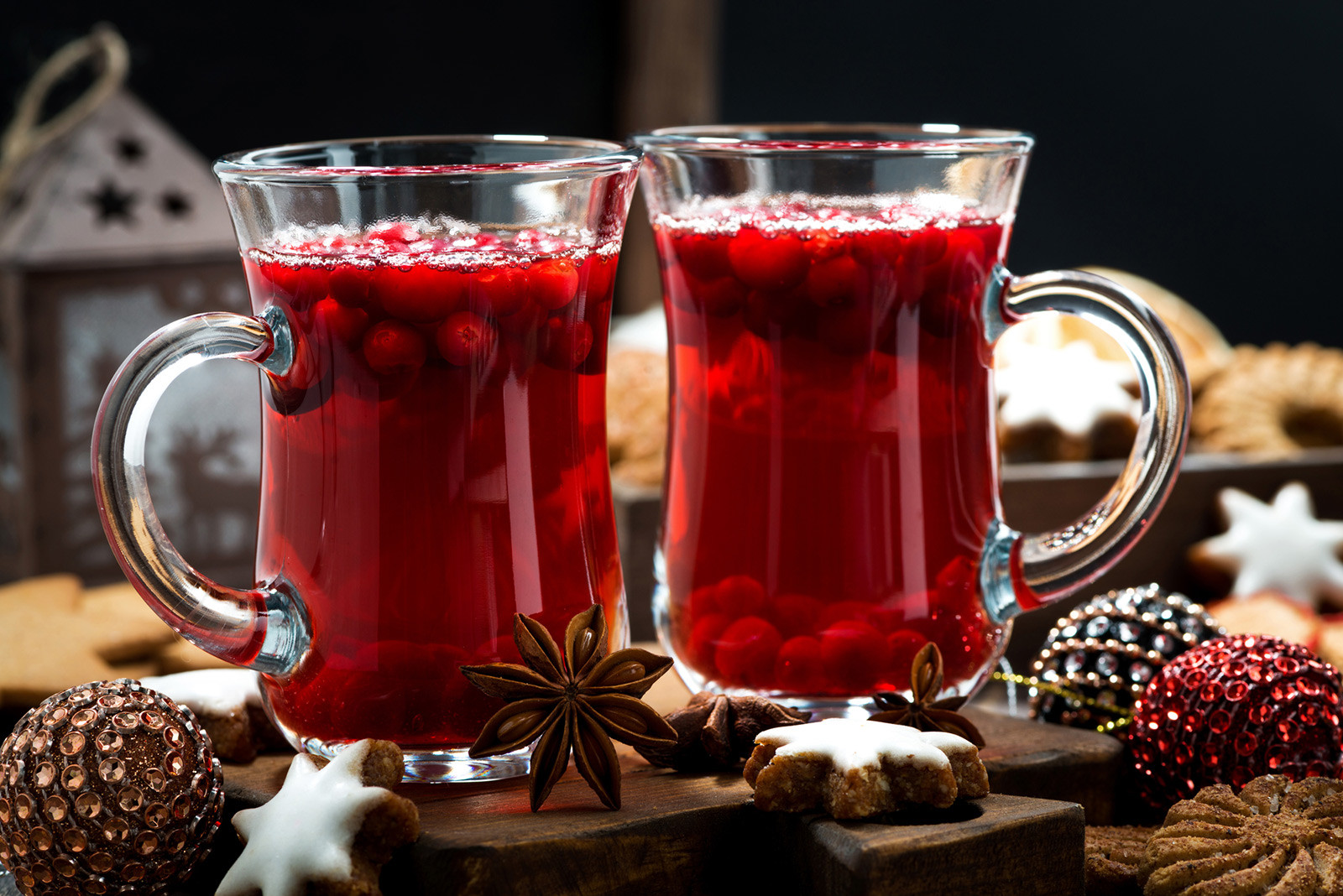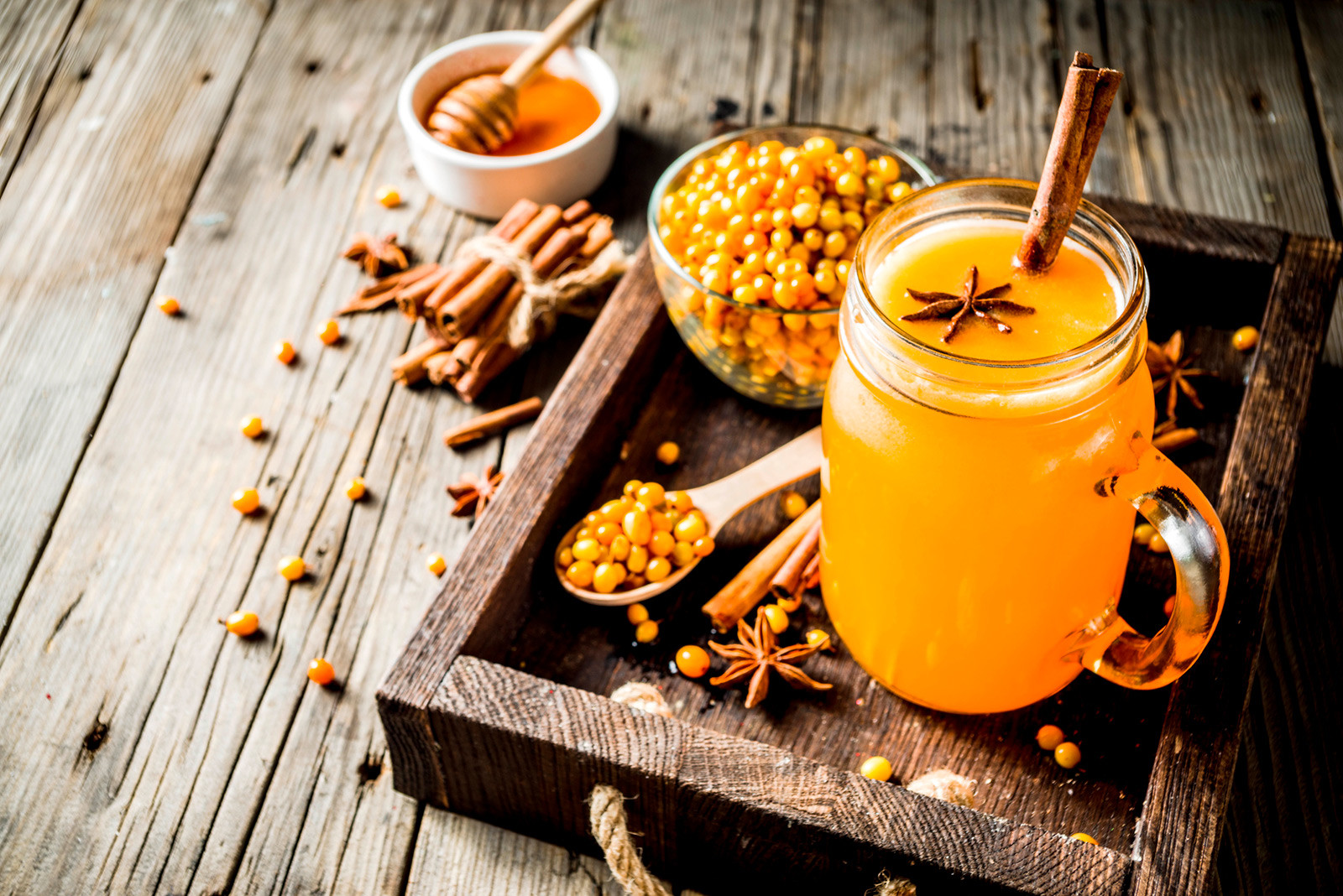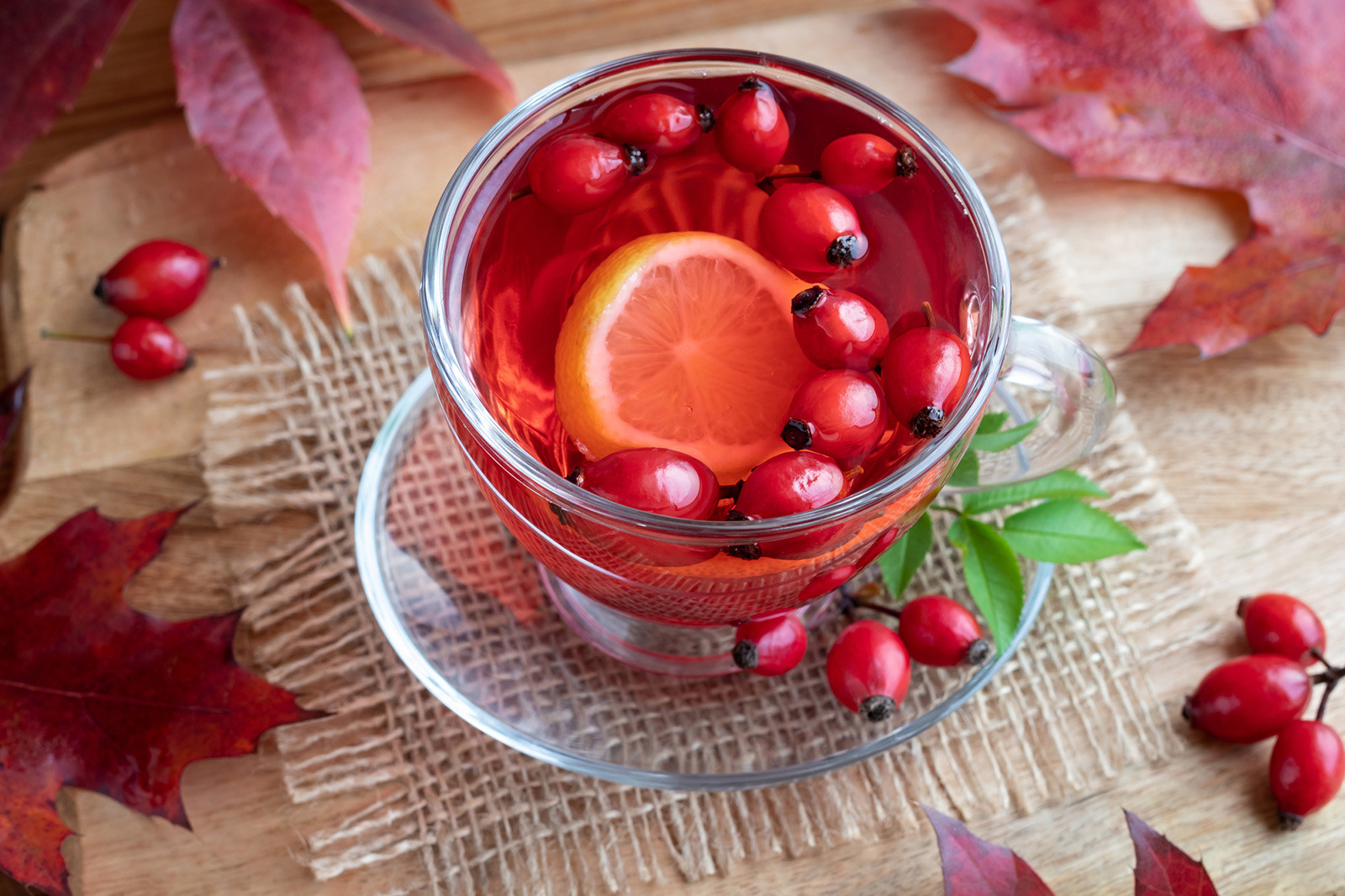3 berry infusions Russians trust more than medicine

1. Cranberries

Cranberries are mostly produced in obscure parts of Russia, but the country nonetheless does everything it can to get their hands on these antioxidants and weight loss facilitators. Cranberry tea will also keep you alert, as the natural sugars in the vermilion berry have been proven to increase brain activity. The drink was therefore introduced to Russians in Soviet times to inspire the nation’s thinkers, and to compete with American cranberry production.
Cranberry tea has a distinctly sharp, fruity flavor that goes well with other fruits and spices. In fact, since it’s not so full-bodied, we actually recommend combining your cranberries with extra ingredients in order to get the most flavors out of your brew.
To make cranberry and orange tea, you’ll need:
- 600ml water
- 100g cranberries
- ½ an orange
- 1 stick cinnamon
- 2cm ginger root
- 1 tsp green tea
- 3 tsp honey
Step 1 – Wash the cranberries and crush with a mortar.
Step 2 – Add the cranberries, orange, green tea, ginger, cinnamon, and pre-boiled water to a pot. Boil and leave to brew with the lid on for 15 mins.
Step 3 – Add the honey, stir, and strain.
Step 4 – Serve with an orange slice.
2. Sea buckthorns

This amber miracle shrub, native to Caucasian Russia, has been drunk in the motherland for centuries. In fact, sea buckthorns remain one of Russia’s most widespread folk medicines due to their anti-inflammatory and immunity-strengthening qualities, which make them a great option for keeping colds at bay. Surprisingly, sea buckthorns are even said to contain more vitamin C than citrus fruits and more vitamin E than wheat. If they’re good enough to be deemed adequate horse feed, they’ll certainly be good enough to keep you healthy.
Sea buckthorns are not only insanely healthy, but they’re also uniquely succulent due to their thick skin and high juice content, with a specific flavor that’s both sweet and sour. What’s more, when they’re mixed in a tea, they produce an incredible color.
To make sea buckthorn and ginger tea, you’ll need:
- 600ml water
- 150g sea buckthorns
- 4cm ginger root
- 2 star anise
- 1 stick cinnamon
- 2 tsp honey
Step 1 – Peel and grate the ginger root.
Step 2 – Wash the sea buckthorn and crush with a mortar.
Step 3 – Put all the ingredients (except the honey) into a pot, boil, and leave to brew for 10 mins.
Step 4 – Serve with honey.
3. Rosehips

If you were to believe a Russian, enough rosehips would guarantee a life free from strokes and heart attacks. There might be some logic to this – Russia’s superberry packs in almost every vitamin you can imagine, including A, B2, C, E, and K, as well as healthy doses of iron and phosphorus.
The pink berry has been a Russian staple for centuries, with ancient Slavs nicknaming rosehip trees “freedom trees” whose blooming signified the beginning of summer. Indeed, rosehips are primarily grown in European Russia in the summertime, but they’re so beloved here that many diehard fans will dry their stash in the warmer part of the year to make this heart-warming drink available during the cold winter months.
For all its medicinal goodness and likeness to dried cranberries, a rosehip brew is not, however, a replacement for other, tastier berries. In fact, its astringent zest can be fairly unremarkable, and at times medicinal. However, the brew is greatly enhanced with mint, hibiscus, ginger, and lemon though, while sugar can help deal with some of the berry’s acerbity.
To make rosehip and hibiscus tea, you’ll need:
- 600ml water
- 150g rosehips (or 100g if dried)
- 4 dried hibiscus flowers
- 4cm ginger root
- ¼ lemon
- 2 tsp honey
Step 1 – Simmer gently the rosehips and hibiscus flowers in the water for about 5 minutes, softly crushing the rosehips with a spoon. Cover and leave to simmer for another 10 mins.
Step 2 – Grate the ginger into the pot and bring the brew to the boil.
Step 3 – Add the honey and squeeze the juice of the lemon into the brew. Leave to sit for 2 mins.
Step 4 – Strain and serve.
If using any of Russia Beyond's content, partly or in full, always provide an active hyperlink to the original material.
Subscribe
to our newsletter!
Get the week's best stories straight to your inbox